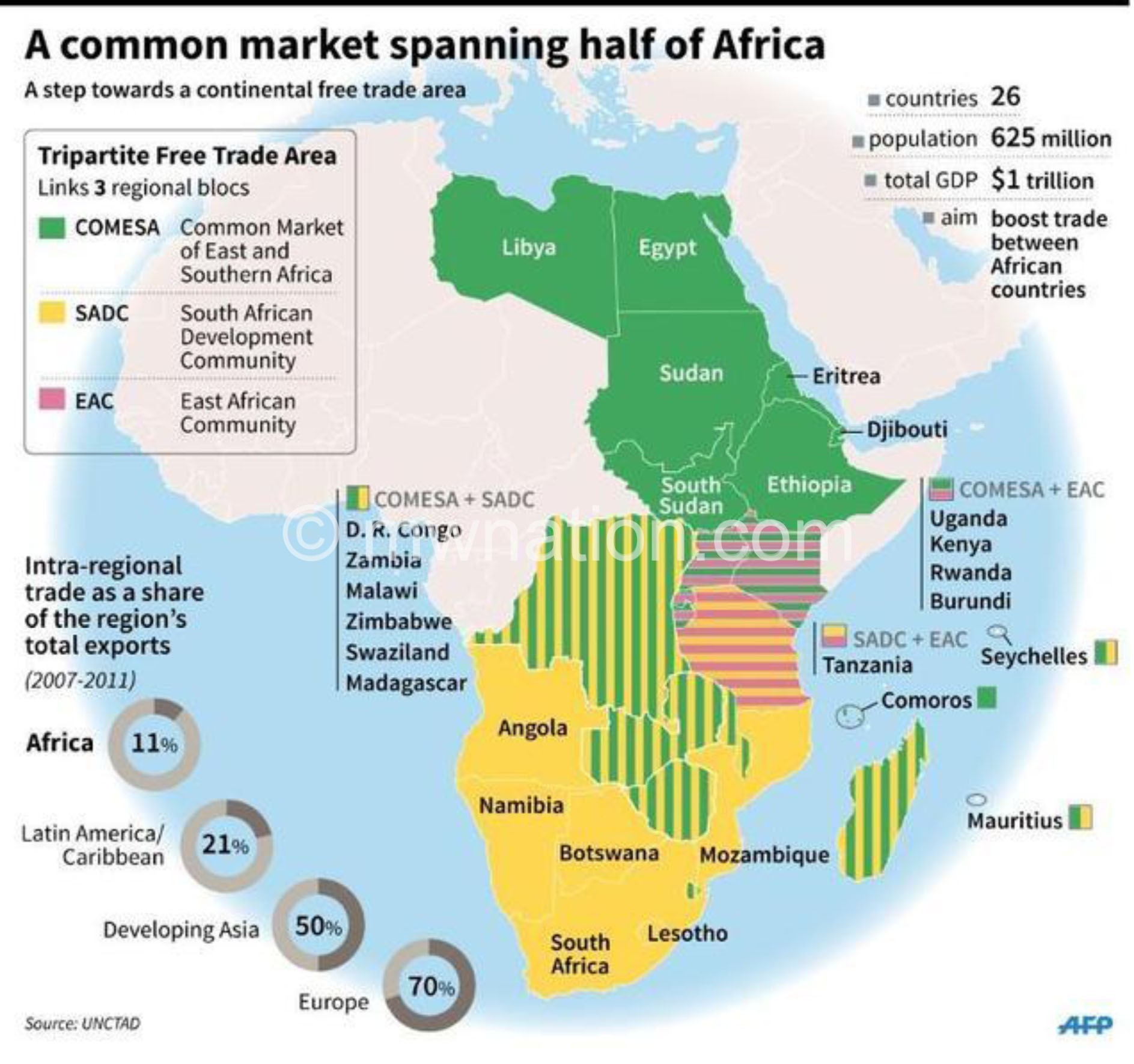Firms say not ready for free trade area
The Malawi Confederation of Chambers of Commerce and Industry (MCCCI) says local businesses are not yet ready for the African Continental Free Trade Area (AfCFTA) due to lack of competitiveness.
In an interview on Friday on the sidelines of a sensitisation seminar on AfCFTA with the private sector organised by the Ministry of Industry, Trade and Tourism in Blantyre, MCCCI chief executive officer Chancellor Kaferapanjira said the major source of competitiveness is electricity, which the industry does not have.
He said: “The major source of competitiveness is availability of electricity and unfortunately that is what we don’t have because to take advantage of this market, you really need to export high-value products so that you are able to take advantage of the market, but also ensure that you are making money and these are things that we have to work on because we are really not ready as at now.
“When you talk about capacity, you have to start from somewhere. For sure, there is some capacity but maybe we are not competitive enough. We have seen that we have gone into so many free trade agreements, for example, under the Sadc [Southern Africa Development Community] .
“We are part of the Sadc Free Trade Area and in Comesa [Common Market for Eastern and Southern Africa], we are also part of the Comesa Free Trade Area, but we have not fully exploited the benefits under these regional agreements.”
Kaferapanjira said there is no harm in going beyond the regional free trade agreements, but the other setback is the country’s over reliance on agricultural products for exports, which he stated are affected by uncertainties fuelled by government policies such as export restrictions made without stakeholder consultation.
AfCFTA’s primary purpose is to promote intra-African trade and accelerate regional integration.
According to the United Nations Economic Commission for Africa (Uneca), AfCFTA has the potential to increase trade volumes by 50 percent over the next five years.
Recent data from the African Union (AU) show that intra-African trade accounted for 16 percent of the continent’s total trade volumes, falling behind that of Asia and Latin America, where regional trade accounts for 51 percent and 19 percent, respectively.
Minister of Industry, Trade and Tourism Henry Mussa said moving forward, the country’s private sector stands to benefit from financial support to be provided by Afrexim Bank through the existing local banks to leverage their potential to take advantage of the AfCFTA market opportunities.
“AfCFTA is beneficial to Malawi because of its expanded market, including a growing middle class; ease in travel requirement; harmonisation of systems, economies of scale through enhanced competitiveness at industry and enterprise level, improved value chain and attraction of foreign direct investment,” he said.
Mussa said implementation will be done in the context of respective State laws and procedures and countries will still have a right to deny entry of some goods.
Malawi signed AfCFTA last month alongside other 43 African countries.
Some experts doubt the success of the deal because as it stands, one of the region’s largest economies is notably absent.
AfCFTA comprises 1.2 billion people and a combined GDP of $3.5 trillion.





